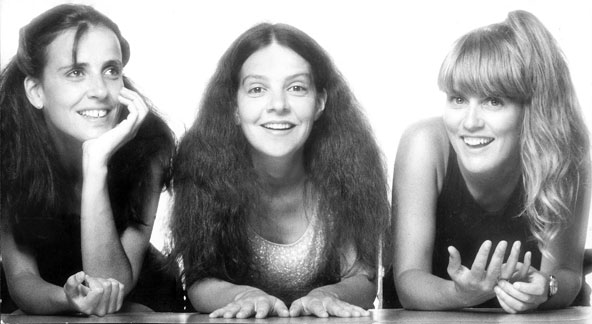
Michael Tannen, The Roches’ manager, was yelling into the phone at me. Why don’t you just listen to the radio and figure out how to write a commercial song? Then the phone went dead.
We were at that point every music career gets to where the honeymoon was over. The Roches had burst onto the music scene in 1979 with a shower of press infatuation rarely accorded a folk group. The unlikely pairing of King Crimson’s Robert Fripp, with his hard-driving English art rock, and the three singing sisters from New Jersey had caught the attention of music writers even before the album was released. Liz Rosenberg, our publicist at Warner Brothers, told us the press was calling her for interviews. She told us this was extremely unusual.
When the actual record came out, the momentum accelerated. The sound of three fairly soft voices and three acoustic guitars, with songs about waitress jobs, commuter trains and longing to be accepted by your parents, issued forth into the 1970s climate of disco fever like a drop of powerful medicine into a compromised bloodstream. Fripp, in an interview, put forth that people don’t realize gentle music can be revolutionary. Some of his fans were upset that he’d traded in bombastic male music for lily-white warbling so delicate you had to turn up the dial to hear it. “The Roches” was No. 1 on The New York Times’s list of the year’s best albums. We were on our way.
